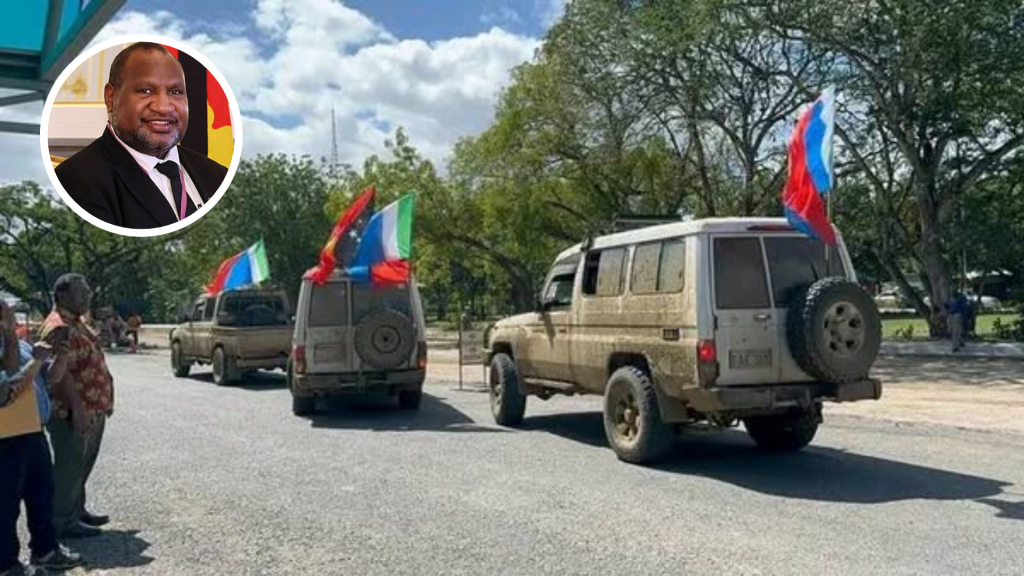Prime Minister James Marape has announced that, for the first time in Papua New Guinea’s history, people can now drive from Alotau in Milne Bay Province to Port Moresby, opening up one of the most remote parts of the country through the government’s ambitious road connectivity program.
“This is a historic achievement. Just as I drove from Kikori to Mt Hagen during Christmas in 2022 witnessing firsthand Gulf people now selling coconuts, crabs, lobsters, and sago.”
“Highland markets, today, we celebrate a similar transformation as people drive from Alotau into Central Province and on to Port Moresby.”
He highlighted how road connectivity is already changing lives.
“Instead of travelling by sea, young people from Gulf were able to drive from Kikori to Hagen and then on to Lae to take part in the national basketball championships.”
“That’s the real impact of opening up our country through roads.”
Prime Minister Marape described the new Alotau-Port Moresby route as an ‘iconic tourism highway’ in the making, stretching from Milne Bay’s white and black sandy beaches through Central Province’s rich culture and scenic beauty.
“This is more than a road; it’s a pathway to tourism, agriculture, fisheries, hospitality, forestry, and other rural industries.”
While the highway is still in its early development phase and not fully sealed, it represents a major breakthrough in national infrastructure.
“This is the first-cut stage. Over time, we will build it into a world-class sealed highway.”
“For now, it is already operational, and people are using it.”
To safeguard this progress, Prime Minister Marape confirmed that new law enforcement infrastructure is part of the broader development vision.
“We intend to include police stations along strategic sections of our highways.”
“These roads must be safe and secure for our people.”
“They are meant for business, tourism, and community development, not for criminal activity.”
He also revealed a new land policy initiative being developed with the Department of Lands and the Department of Commerce and Industry to ensure landowners along the highways can register their land and use it as bankable collateral to start businesses.
“We want our people to go into commercial agriculture, fisheries, tourism, and hospitality.”
“That’s how we convert road infrastructure into economic opportunity.”
“We are already seeing successful ventures like the export of mud crabs from Central direct to Singapore, and we want to see more of that.”
In addition, he assured the nation that construction is continuing on remaining links, with less than 30 kilometres left to complete the Alotau-Port Moresby connection.
“It is my intention to personally drive the full stretch of the highway from Port Moresby to Alotau in August this year.”
He also dismissed recent allegations by the Opposition regarding project mismanagement.
“An independent audit is currently underway into the conduct of Works, but that will not stop our determination.”
“Our vision is clear: to connect the country and empower our people through infrastructure.”
“This is our blueprint. From the Highlands to the coast, from West Sepik to Milne Bay, roads are going in.”
“Let us use them to lift our people out of poverty and into prosperity.”

